Find Help
More Items From Ergsy search
-
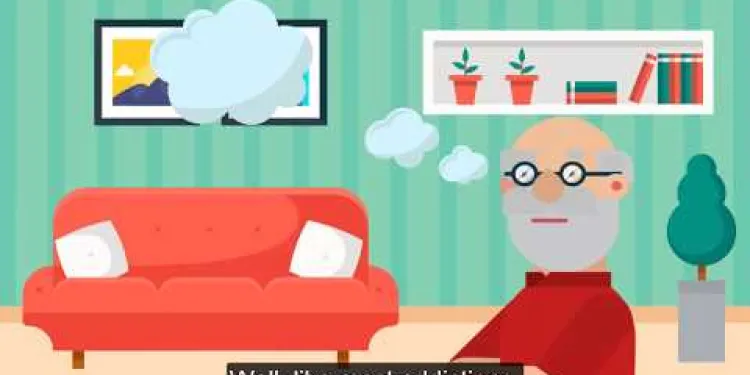
NHS Stop Smoking Subtitled version
Relevance: 100%
-

NHSGGC - Quit Your Way - Don’t wait to stop smoking
Relevance: 83%
-
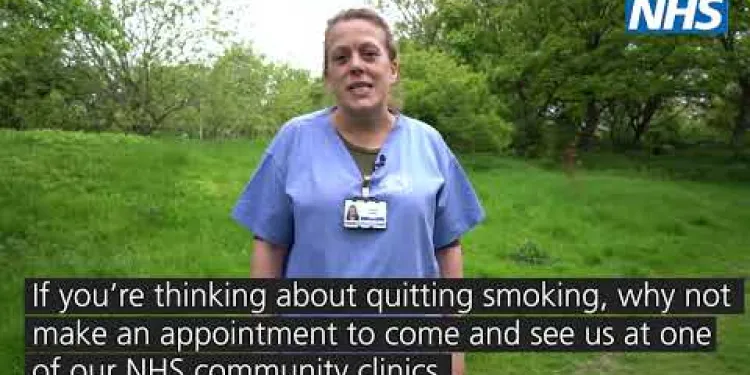
NHS Stop Smoking Support in Blackpool - What happens when you use our service
Relevance: 82%
-

What are the rules regarding smoking?
Relevance: 57%
-

What is vaping and is it safer than smoking?
Relevance: 52%
-
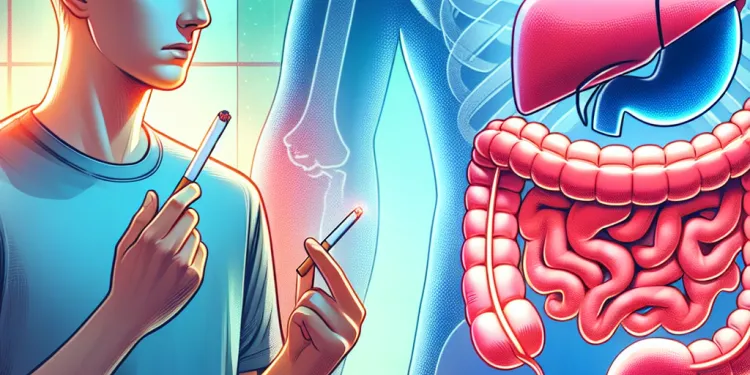
How does smoking affect Crohn's disease?
Relevance: 52%
-
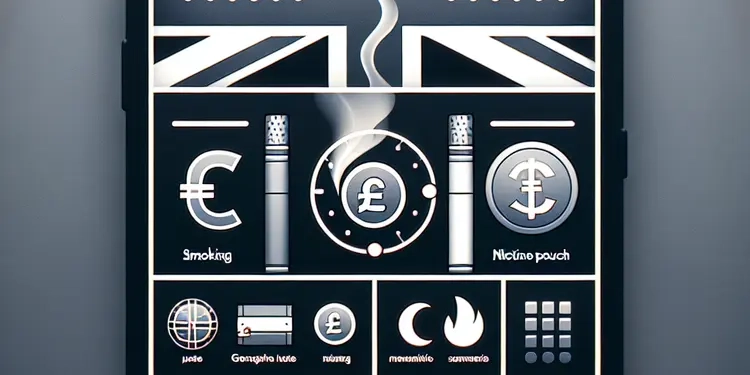
Are nicotine pouches safer than smoking?
Relevance: 52%
-
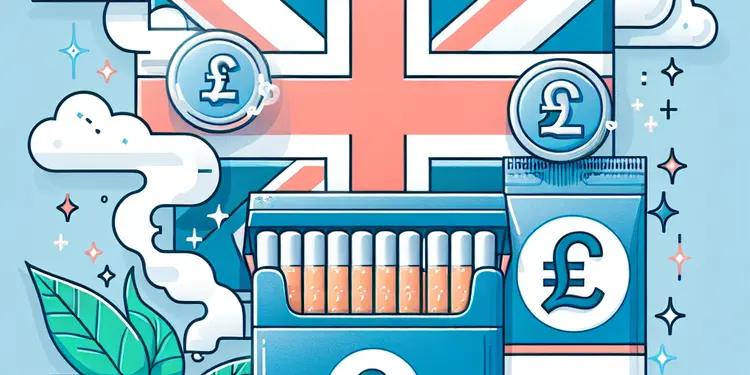
Can nicotine pouches help in quitting smoking?
Relevance: 51%
-
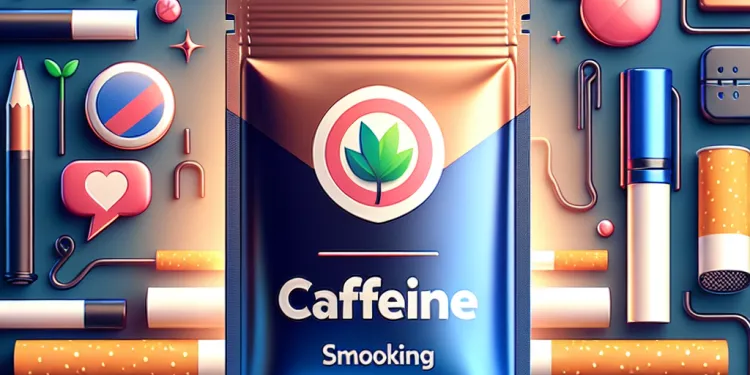
Can caffeine pouches be used for quitting smoking?
Relevance: 51%
-

Are nicotine pouches safer than smoking cigarettes?
Relevance: 49%
-
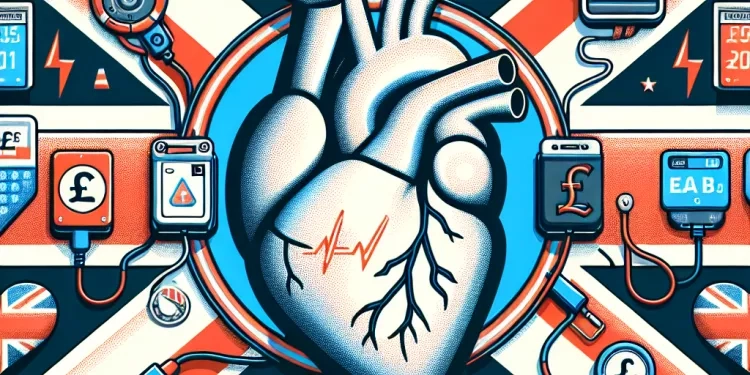
Can a defibrillator restart a stopped heart?
Relevance: 46%
-

What happens if I stop taking Ozempic or Wegovy?
Relevance: 46%
-

Can Universal Credit be stopped or sanctioned?
Relevance: 46%
-
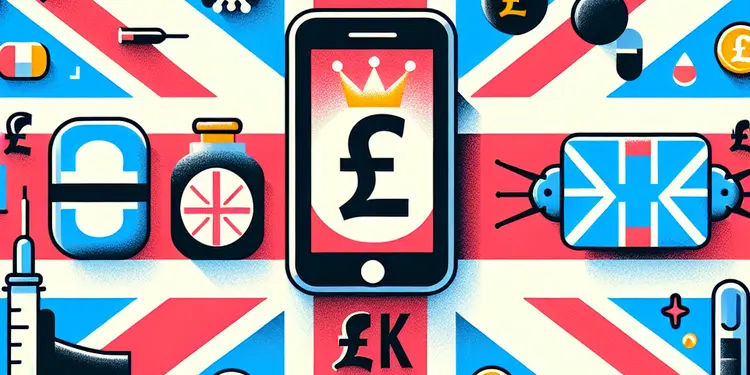
If I stop Ozempic or Wegovy jabs, will I regain weight?
Relevance: 45%
-
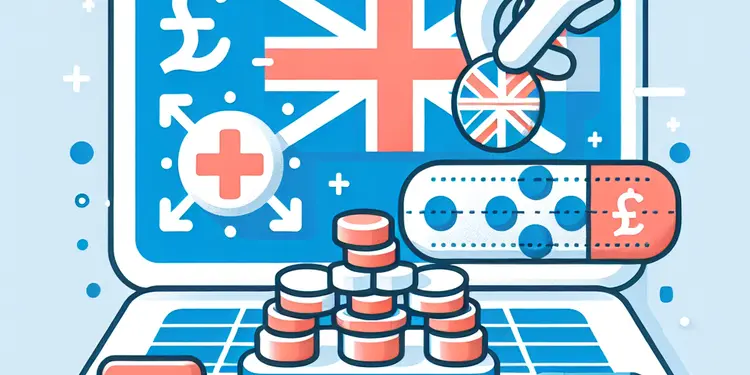
Should I stop taking antibiotics if I feel better?
Relevance: 45%
-

Can I stop an eviction if I catch up on rent payments?
Relevance: 44%
-
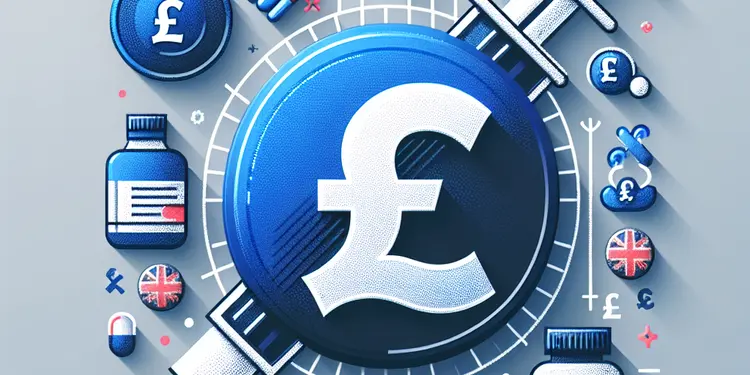
What happens if I stop taking weight loss jabs?
Relevance: 44%
-
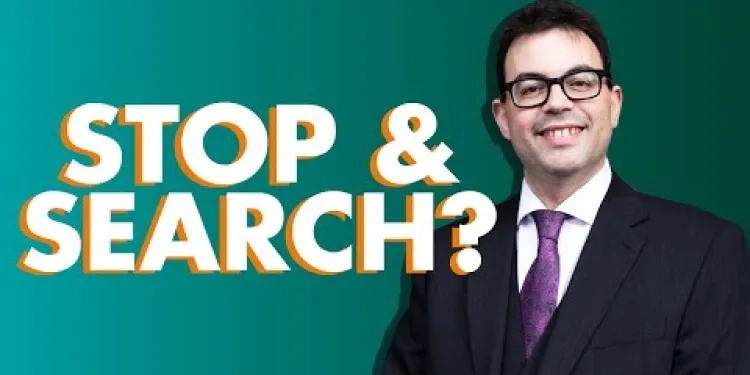
What are my rights if the police want to stop and search me? [Criminal law]
Relevance: 43%
-
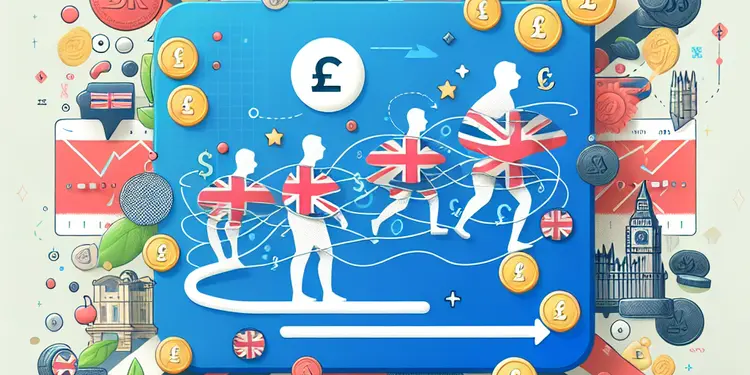
Is it common to regain weight after stopping Wegovy or Ozempic?
Relevance: 43%
-
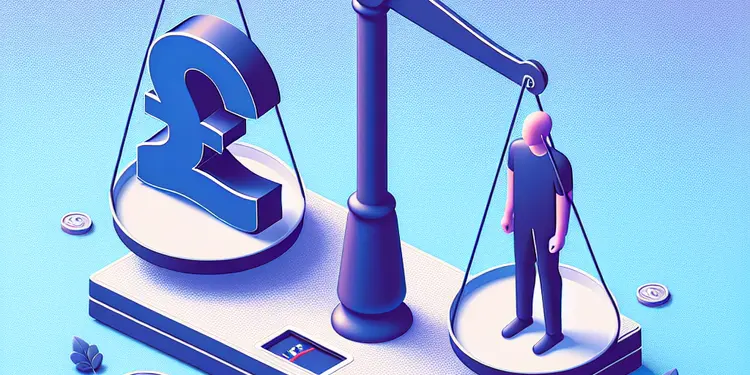
Will I regain all the weight I lost if I stop Ozempic or Wegovy?
Relevance: 43%
-

Does filing for bankruptcy stop an eviction?
Relevance: 41%
-

Will reporting complaints stop all unsolicited contacts?
Relevance: 41%
-

Does refrigeration stop bacterial growth completely?
Relevance: 40%
-
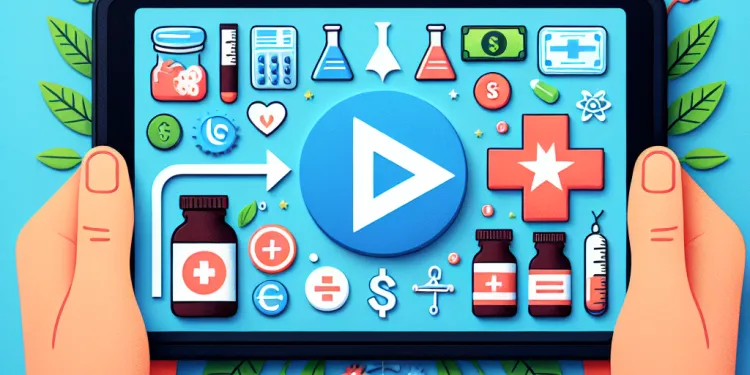
Is it necessary to stop conventional treatment when starting homeopathy?
Relevance: 38%
-
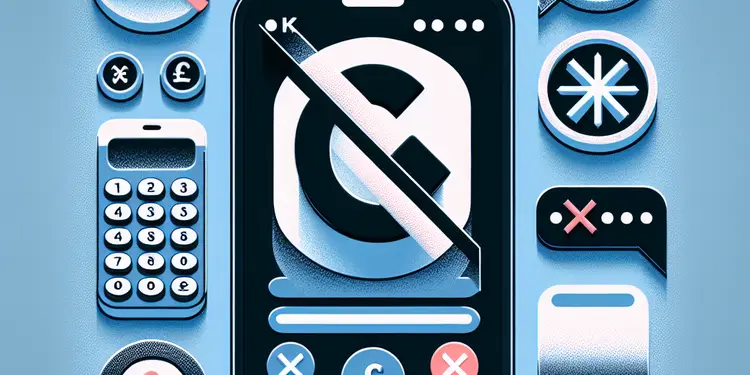
How can I stop receiving unsolicited texts or phone calls?
Relevance: 38%
-
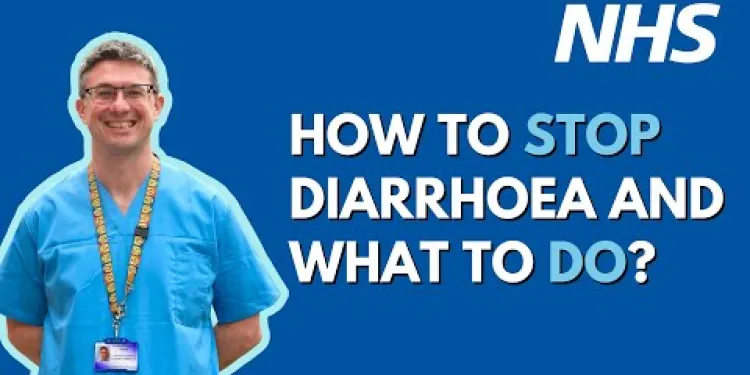
Diarrhoea - How to stop it? | UHL NHS Trust
Relevance: 37%
-
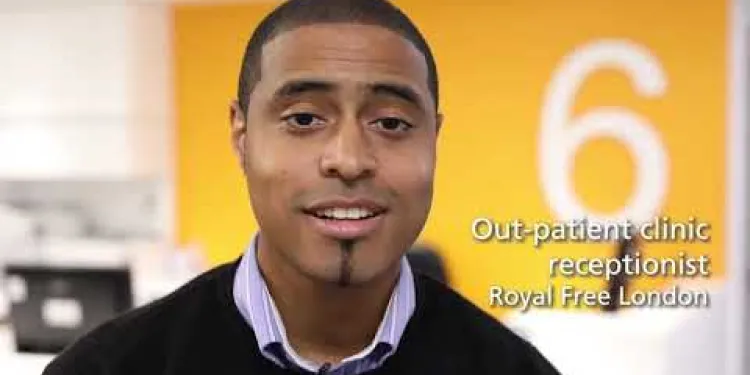
Anaemia One stop shop
Relevance: 37%
-
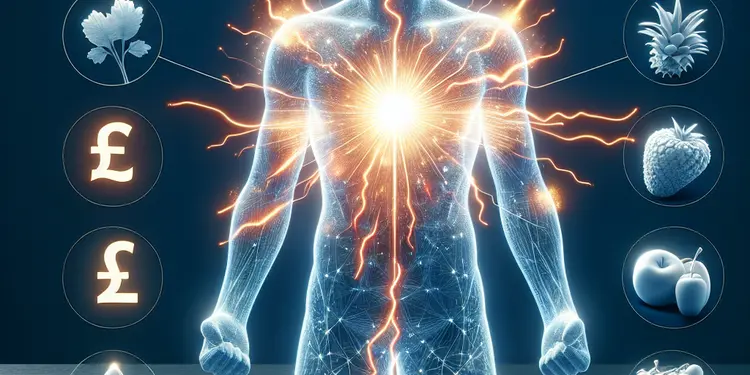
What happens to your body when you stop eating sugar?
Relevance: 36%
-
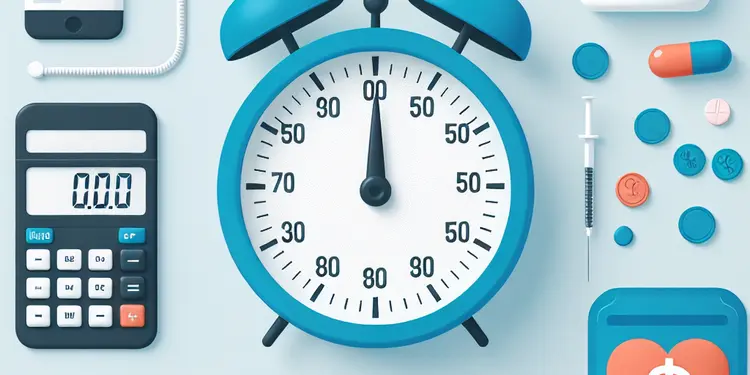
Is weight regain possible after stopping Wegovy?
Relevance: 36%
-
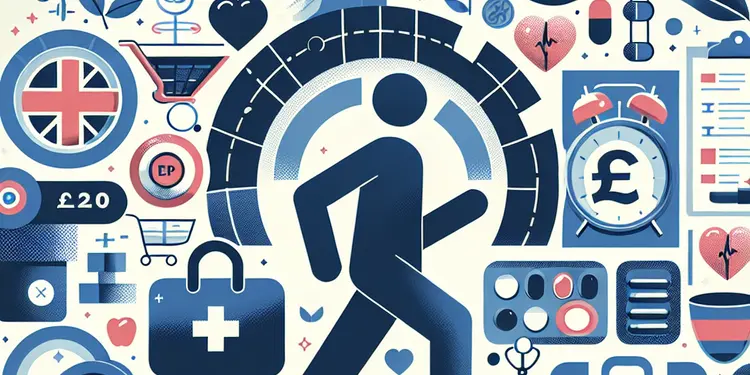
Are there long-term solutions to maintain weight loss after stopping Ozempic or Wegovy?
Relevance: 35%
-

Can aspirin stop colorectal cancer?
Relevance: 35%
-

What should I do if I want to stop taking Ozempic or Wegovy but keep the weight off?
Relevance: 33%
-

How quickly will I regain weight if I stop using Ozempic or Wegovy?
Relevance: 31%
-

What are the warning signs that an elderly person should stop driving?
Relevance: 31%
-
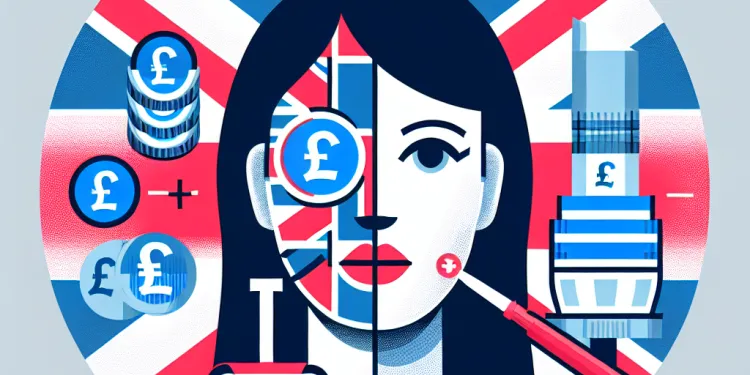
How should I prepare for a facelift?
Relevance: 28%
-
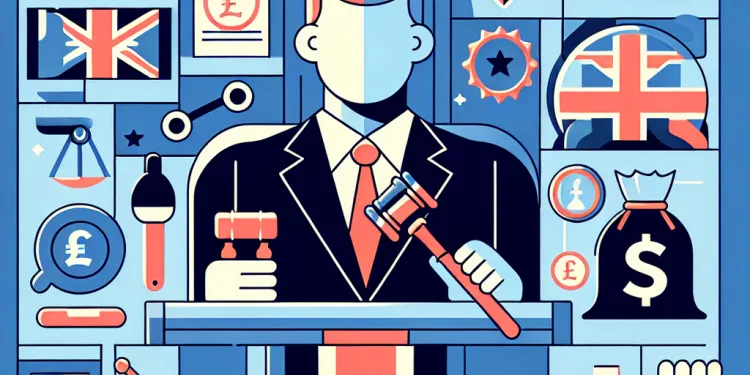
Can my employer stop me from attending jury duty?
Relevance: 28%
-

How can I stop my neighbour's security camera pointing at my property?
Relevance: 27%
-
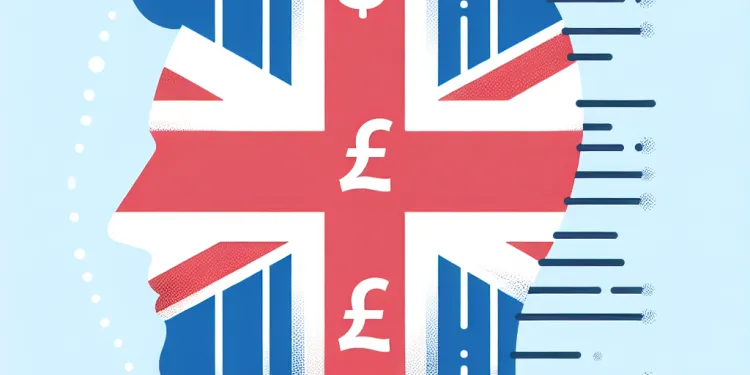
Who is an ideal candidate for a facelift?
Relevance: 25%
-
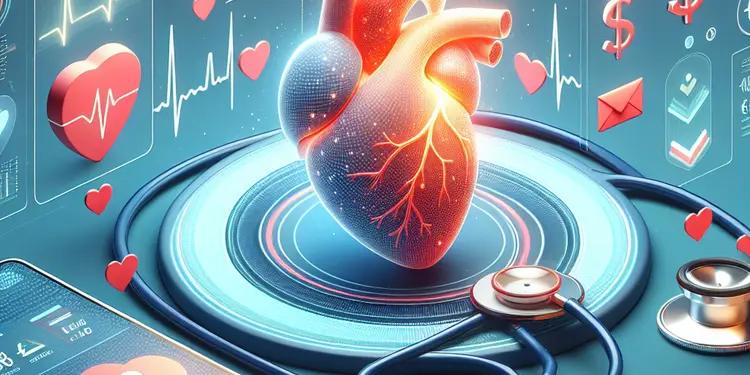
Is it possible to prevent a heart attack?
Relevance: 22%
-
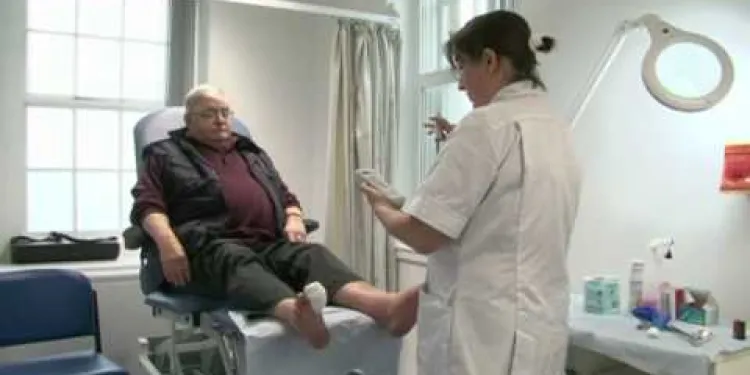
Diabetes Care - Preventing Amputations
Relevance: 22%
NHS Stop Smoking Subtitled Version
Introduction to NHS Stop Smoking Services
The NHS Stop Smoking Services offer a variety of support systems designed to help individuals in the United Kingdom quit smoking. Whether it’s through face-to-face meetings, telephone support, or online resources, the initiative is dedicated to providing practical advice and reliable information for those who want to lead a healthier life.Benefits of Quitting Smoking
Quitting smoking brings immediate and long-term health benefits. Within days of quitting, blood pressure drops and lung function begins to improve. Long-term benefits include a significantly reduced risk of developing heart disease, stroke, and cancer. Additionally, quitting smoking can improve overall life expectancy and enhance quality of life.Support Available
The NHS Stop Smoking Services provide a comprehensive range of support options. These include local Stop Smoking Services, which offer personalized help through trained advisors and group support sessions. There is also a national helpline, Quitline, which operates to provide advice and motivation. Moreover, the NHS offers a free online resources including mobile apps, text messaging support, and tailored quit plans to help smokers stay on track.Prescription Medications and NRT
Quitting smoking can be challenging, and sometimes additional help is needed. Prescription medications such as Varenicline (Champix) and Bupropion (Zyban) can help reduce cravings and withdrawal symptoms. Nicotine Replacement Therapy (NRT) – available as patches, gum, lozenges, and sprays – can also be an effective tool to manage cravings and withdrawal symptoms.The Impact of Subtitled Resources
Subtitled resources ensure that the NHS Stop Smoking Services are accessible to a wider audience, including individuals who are deaf or hard of hearing. These resources provide visual aids and clear instructions, helping more people to understand the cessation process and access the necessary support.Taking the First Step
Making the decision to quit smoking is a significant first step towards better health. The NHS Stop Smoking Services are here to support you through your journey, offering a variety of tools and resources tailored to meet your needs. For more information, visit the NHS Stop Smoking Service website, contact your local service, or call the national Quitline for support.Conclusion
The NHS Stop Smoking Services are committed to helping individuals in the UK lead healthier, smoke-free lives. With a variety of support options, including subtitled resources, prescription medications, and NRT, there is a wealth of help available to make the quitting process smoother and more manageable. Take the first step today and reach out for the support you need to quit smoking for good.NHS Stop Smoking with Subtitles
What is NHS Stop Smoking?
The NHS Stop Smoking Services help people in the UK to stop smoking. They offer help in different ways, like talking face-to-face, support on the phone, or using online tools. They give easy advice and good information for people who want to be healthier.Why Quit Smoking?
Stopping smoking is good for health right away and in the long run. A few days after stopping, your blood pressure gets better and your lungs work better. Over time, you are less likely to get heart problems, stroke, or cancer. Stopping smoking helps you live longer and feel better.Help You Can Get
The NHS Stop Smoking Services offer lots of help. Local Stop Smoking Services have trained people to help you one-on-one or in groups. The Quitline is a phone helpline for advice and a boost when you need it. The NHS also has free online tools like apps, text messages, and special quit plans to keep you going.Medicines and NRT
Stopping smoking can be hard. Sometimes medicine helps. Doctors can give medicines like Varenicline (Champix) and Bupropion (Zyban) to help with cravings. Nicotine Replacement Therapy (NRT), like patches, gum, and sprays, can also help with cravings.Why Use Subtitled Resources?
Subtitled resources help more people use the NHS Stop Smoking Services. They are good for people who cannot hear well. These resources have pictures and clear steps, making it easier to understand and get help.Start Your Quit Journey
Deciding to stop smoking is a big and good step for your health. The NHS Stop Smoking Services want to help you. They have many tools and resources just for you. Visit their website, call your local service, or phone the Quitline to get help.Final Words
The NHS Stop Smoking Services want to help people in the UK to stop smoking and be healthier. They have many ways to help, like subtitles, medicines, and NRT. There is lots of help to make stopping smoking easier. Take the first step today and ask for the help you need to stop smoking for good.Frequently Asked Questions
Why should I stop smoking?
Stopping smoking improves your health, reduces your risk of diseases like cancer and heart disease, and increases your life expectancy.
What support is available to help me stop smoking?
You can access free local NHS stop smoking services, use nicotine replacement therapies, get support from your GP, and use mobile apps designed to aid quitting.
How can nicotine replacement therapy (NRT) help?
NRT provides a low level of nicotine without the tar, carbon monoxide, and other poisonous chemicals found in cigarette smoke, helping to reduce withdrawal symptoms.
Is vaping a safe way to quit smoking?
Vaping is considered less harmful than smoking cigarettes, and many people find it helpful as a quitting aid when combined with other support.
What are the common withdrawal symptoms when I quit smoking?
Common symptoms include irritability, cravings, difficulty concentrating, increased appetite, and trouble sleeping. These are temporary and can be managed with support.
How long does it take to feel the health benefits after quitting?
Health benefits can be felt almost immediately. Within 20 minutes, your heart rate drops; within 48 hours, carbon monoxide is eliminated from your body, and within a year, your risk of heart disease is halved.
Can prescription medications help with stopping smoking?
Yes, medications such as Varenicline (Champix) and Bupropion (Zyban) can help reduce cravings and withdrawal symptoms. Speak to your GP about what may be suitable for you.
How can I manage stress when quitting smoking?
Practicing relaxation techniques, exercising, staying busy with hobbies, and seeking support from friends and family can help manage stress without relying on cigarettes.
What should I do if I relapse and start smoking again?
Don't be discouraged. Many people try multiple times before quitting for good. Learn from your experience, identify triggers, and seek support to try again.
Are there any support groups for people trying to quit smoking?
Yes, you can find local support groups through the NHS or join online communities and forums where people share their experiences and tips.
How can I cope with cravings while quitting smoking?
Cravings typically last a few minutes. Distract yourself with activities, use NRT, practice deep breathing, or drink water until the craving passes.
Will I gain weight after stopping smoking?
Some people gain weight after quitting due to increased appetite. Eating a healthy diet, exercising, and finding ways to manage cravings can help maintain your weight.
Can I use multiple methods to help me quit smoking?
Yes, combining methods such as using NRT with counseling or medication can increase your chances of successfully quitting.
How can I prevent slip-ups during stressful times?
Plan ahead by identifying triggers and having strategies in place, such as having a support person to call, practicing relaxation techniques, or using NRT.
How important is it to set a quit date?
Setting a quit date gives you something to prepare for and can provide motivation. It’s a key step in making your plan to quit and stick to it.
Why is it good to stop smoking?
Stopping smoking is good for your health. It helps you breathe better and can make your heart stronger. You may also have more energy and feel better overall.
If you stop smoking, you can save money because cigarettes are expensive. It also means the air around you is cleaner for your family and friends.
To help you stop smoking, you can talk to a doctor or join a support group. There are also apps and websites that can help you quit.
Quitting smoking is good for your health. It lowers the chance of getting sick from cancer or heart problems. It can also help you live longer.
Helpful Tips:
- Get support from family and friends.
- Try using apps or tools that help you quit.
- Talk to a doctor for advice.
What can help me stop smoking?
There are many ways to help you stop smoking:
- Talk to someone: Chat with a doctor, nurse, or a special person called a counselor. They can give you advice and help.
- Use special products: Try things like patches or gum that give you a small amount of the stuff you get from smoking (nicotine) to help you stop craving it.
- Join a group: Go to places where you can talk with other people who are trying to stop smoking. This can help you feel supported and not alone.
- Apps and websites: Use your phone or computer to find apps and websites that can help you quit smoking. They can give you tips and track your progress.
Remember, it's okay to ask for help and keep trying. You can do it!
You can get help to stop smoking for free. You can use local NHS services to quit, try nicotine patches or gum, talk to your doctor, and use mobile apps that help you stop smoking.
How can nicotine replacement therapy (NRT) help?
Nicotine replacement therapy (NRT) can help people who want to stop smoking. It gives your body a little bit of nicotine without the bad stuff in cigarettes.
NRT can make it easier to quit smoking by reducing cravings and withdrawal symptoms.
There are different types of NRT, like patches, gum, and lozenges. You can choose the one that helps you best.
Ask an adult or your doctor to help you find the right type for you. They can also support you in making a plan to quit smoking.
There are also apps and support groups that can help you stay strong and smoke-free.
NRT gives you a little bit of nicotine. But it does not have the bad stuff from cigarettes like tar and carbon monoxide. It helps you feel better when you stop smoking.
Is vaping a good way to stop smoking?
Some people use vaping to help them quit smoking.
Vaping is when you breathe in a mist from an e-cigarette instead of smoke from a regular cigarette.
Vaping might be safer than smoking, but it is not completely safe.
If you want to stop smoking, it is a good idea to talk to a doctor or a nurse.
They can help you find the best way to quit.
You can also try support groups or use apps that help you quit smoking.
Vaping is not as bad as smoking cigarettes. Many people use it to help them stop smoking, along with other helpful things.
What happens to my body when I stop smoking?
Some common signs are feeling grumpy, wanting certain foods, finding it hard to focus, feeling more hungry, and having trouble sleeping. These are just for a short time and you can get help to feel better.
How long does it take to feel better after you stop smoking?
Quitting smoking is good for your health. You might want to know when you will start to feel better. Here is some helpful information:
- Just 20 minutes after your last cigarette, your heart rate slows down and your blood pressure gets better.
- After 8 hours, the level of carbon monoxide in your blood drops, and you have more oxygen.
- In 48 hours, your sense of taste and smell start to come back.
- After 2 weeks to 3 months, your lungs work better, and you can breathe more easily.
- In 1 to 2 years, your risk of heart disease goes down a lot.
If you need help to quit smoking, you can:
- Talk to a doctor or nurse for advice.
- Use nicotine gum or patches.
- Join a support group with friends or people who also want to quit.
- Use apps on your phone to track your progress and get tips.
Good things happen to your body very quickly. After 20 minutes, your heart will slow down. After 2 days, harmful gas leaves your body. After 1 year, your heart is much healthier.
Can Medicine from the Doctor Help You Stop Smoking?
Sometimes, when people want to quit smoking, their doctor can give them special medicine to help. This medicine can make it easier to stop wanting to smoke.
If you want to stop smoking, talk to your doctor. They can tell you if these medicines might help you. It is also good to have support from friends and family while you try to quit.
Some people use apps or join groups to help them stop smoking. These tools can make the journey easier and give you support when you need it.
Yes, there are medicines that can help you stop smoking. Two of them are called Varenicline (Champix) and Bupropion (Zyban). They can make you want to smoke less and help with feeling bad when you stop smoking. Talk to your doctor to find out which medicine is best for you.
How can I stay calm when I stop smoking?
Stopping smoking can be hard. It can make you feel worried or upset. Here are some simple ideas to help you feel better:
- Take deep breaths: When you feel stressed, try taking slow, deep breaths. Breathe in through your nose and out through your mouth.
- Exercise: Moving your body can help you feel good. You can walk, run, or dance!
- Talk to someone: Share your feelings with a friend or family member. They can help you feel better.
- Use a stress ball: Squeeze a soft stress ball in your hand to help you relax.
- Listen to music: Play your favorite songs to help you feel calm.
Remember, it's okay to ask for help if you need it. You are doing great by trying to quit smoking!
To feel less stressed, you can try these things:
- Relax. You can take deep breaths or listen to calming music.
- Exercise. Moving your body, like walking or dancing, can help.
- Do things you enjoy. Play with your toys or spend time on your hobbies.
- Talk to friends or family. They can help you feel better.
You don't need to smoke to feel good.
What can I do if I start smoking again?
Don't give up! A lot of people try many times before they stop for good. Learn from what happened, know what makes you want to smoke, and ask for help to try again.
Is there a group to help people stop smoking?
Yes, there are groups that can help you stop smoking. These groups can give you advice and support. You can talk to people who are also trying to quit. Some tools that might help are:
- Calling a quit smoking hotline
- Joining online forums or message boards
- Using apps that help you track your progress
These tools and groups can make it easier for you to stop smoking.
Yes, you can find help near you by asking the NHS. You can also join online groups where people talk about their stories and share advice.
How can I deal with wanting to smoke when I stop smoking?
When you stop smoking, you might really want a cigarette. Here are some tips to help:
- Breathe deeply. Take a deep breath in and out. This can help you relax.
- Drink water. Having a drink of water can help take your mind off smoking.
- Chew gum or eat a healthy snack, like fruit, when you want a cigarette.
- Talk to a friend or family member. They can help support you.
- Stay busy. Do things you enjoy or start a new hobby.
Also, try using tools like a quit-smoking app. They can remind you of why you are quitting and help you stay on track.
Remember, you can do it! It's okay to ask for help if you need it.
When you really want something, it usually only lasts for a little while. Try doing something else to take your mind off it. You can use things like nicotine patches or gum. Breathe deeply or have a glass of water until you feel better.
Will I get bigger after I stop smoking?
If you stop smoking, you might get a bit bigger. This is because smoking can make people not feel hungry. When you stop, you might feel more hungry and eat more. Try to eat healthy snacks.
Doing some exercise can help too. It makes you feel good and helps keep your body strong.
You can talk to a doctor or nurse. They can give you more ideas to stay healthy when you stop smoking.
Some people might get bigger when they stop smoking. This could be because they feel hungrier. Eating healthy foods, doing exercise, and finding ways to stop wanting snacks can help you stay the same weight.
Can I use different ways to help me stop smoking?
Yes! You can try using different things to help you stop smoking. Here are some ideas:
- Talk to a doctor or nurse. They can give you advice and help.
- Use special gum or patches that can make you want cigarettes less.
- Join a group with other people who want to stop smoking. You can help each other.
- Tell your family and friends you want to stop. They can support you.
Remember, stopping smoking is hard, but using these ways can make it easier. Keep trying and don't give up!
Yes, using different ways to stop smoking, like using NRT and talking to someone or taking medicine, can help you quit better.
How can I stop making mistakes when I am stressed?
Feeling stressed can make it harder to think and do things right. Here are some tips to help:
- Take deep breaths: Slowly breathe in and out to calm down.
- Make a list: Write down what you need to do. This can help you remember.
- Ask for help: Talk to someone you trust if you need support.
- Take breaks: Rest for a little while when you feel too stressed.
- Stay active: Moving your body can make you feel better.
These steps can help you stay calm and make fewer mistakes. You might also find these tools helpful:
- Use a timer: Set a timer for tasks or breaks.
- Use reminder apps: Apps can help you remember things.
Remember, everyone makes mistakes. Just try your best!
Think about what makes you want to smoke. Make a plan to help you when you feel this way. You can have a person to call for support, practice ways to relax, or use nicotine gum or patches.
Why is picking a stop date important?
Choosing a day to stop is a big help. It can make things easier.
Here are some tips to help you:
- Pick a day: Choose a date that is special or important to you.
- Get ready: Tell your friends and family. They can help you.
- Use tools: Try sticky notes or a calendar to remind you.
These ideas can make stopping better.
Choose a day to stop smoking. This helps you get ready and gives you a goal to reach. It's important to have a plan and stay with it.
Useful Links
This website offers general information and is not a substitute for professional advice.
Always seek guidance from qualified professionals.
If you have any medical concerns or need urgent help, contact a healthcare professional or emergency services immediately.
Some of this content was generated with AI assistance. We’ve done our best to keep it accurate, helpful, and human-friendly.
- Ergsy carfully checks the information in the videos we provide here.
- Videos shown by Youtube after a video has completed, have NOT been reviewed by ERGSY.
- To view, click the arrow in centre of video.
- Most of the videos you find here will have subtitles and/or closed captions available.
- You may need to turn these on, and choose your preferred language.
- Go to the video you'd like to watch.
- If closed captions (CC) are available, settings will be visible on the bottom right of the video player.
- To turn on Captions, click settings .
- To turn off Captions, click settings again.
More Items From Ergsy search
-

NHS Stop Smoking Subtitled version
Relevance: 100%
-

NHSGGC - Quit Your Way - Don’t wait to stop smoking
Relevance: 83%
-

NHS Stop Smoking Support in Blackpool - What happens when you use our service
Relevance: 82%
-

What are the rules regarding smoking?
Relevance: 57%
-

What is vaping and is it safer than smoking?
Relevance: 52%
-

How does smoking affect Crohn's disease?
Relevance: 52%
-

Are nicotine pouches safer than smoking?
Relevance: 52%
-

Can nicotine pouches help in quitting smoking?
Relevance: 51%
-

Can caffeine pouches be used for quitting smoking?
Relevance: 51%
-

Are nicotine pouches safer than smoking cigarettes?
Relevance: 49%
-

Can a defibrillator restart a stopped heart?
Relevance: 46%
-

What happens if I stop taking Ozempic or Wegovy?
Relevance: 46%
-

Can Universal Credit be stopped or sanctioned?
Relevance: 46%
-

If I stop Ozempic or Wegovy jabs, will I regain weight?
Relevance: 45%
-

Should I stop taking antibiotics if I feel better?
Relevance: 45%
-

Can I stop an eviction if I catch up on rent payments?
Relevance: 44%
-

What happens if I stop taking weight loss jabs?
Relevance: 44%
-

What are my rights if the police want to stop and search me? [Criminal law]
Relevance: 43%
-

Is it common to regain weight after stopping Wegovy or Ozempic?
Relevance: 43%
-

Will I regain all the weight I lost if I stop Ozempic or Wegovy?
Relevance: 43%
-

Does filing for bankruptcy stop an eviction?
Relevance: 41%
-

Will reporting complaints stop all unsolicited contacts?
Relevance: 41%
-

Does refrigeration stop bacterial growth completely?
Relevance: 40%
-

Is it necessary to stop conventional treatment when starting homeopathy?
Relevance: 38%
-

How can I stop receiving unsolicited texts or phone calls?
Relevance: 38%
-

Diarrhoea - How to stop it? | UHL NHS Trust
Relevance: 37%
-

Anaemia One stop shop
Relevance: 37%
-

What happens to your body when you stop eating sugar?
Relevance: 36%
-

Is weight regain possible after stopping Wegovy?
Relevance: 36%
-

Are there long-term solutions to maintain weight loss after stopping Ozempic or Wegovy?
Relevance: 35%
-

Can aspirin stop colorectal cancer?
Relevance: 35%
-

What should I do if I want to stop taking Ozempic or Wegovy but keep the weight off?
Relevance: 33%
-

How quickly will I regain weight if I stop using Ozempic or Wegovy?
Relevance: 31%
-

What are the warning signs that an elderly person should stop driving?
Relevance: 31%
-

How should I prepare for a facelift?
Relevance: 28%
-

Can my employer stop me from attending jury duty?
Relevance: 28%
-

How can I stop my neighbour's security camera pointing at my property?
Relevance: 27%
-

Who is an ideal candidate for a facelift?
Relevance: 25%
-

Is it possible to prevent a heart attack?
Relevance: 22%
-

Diabetes Care - Preventing Amputations
Relevance: 22%


